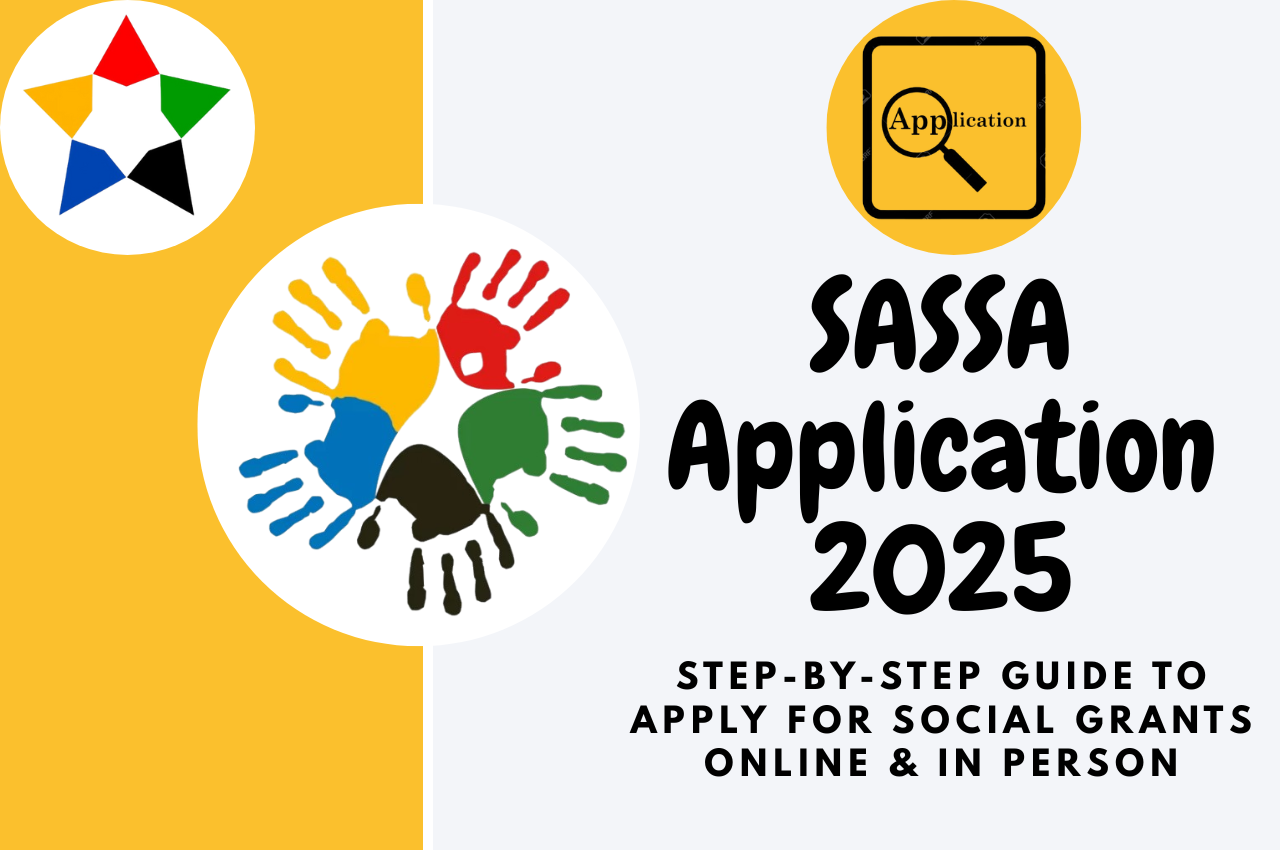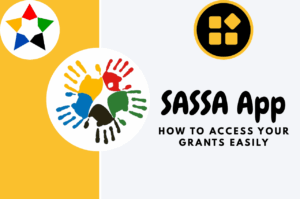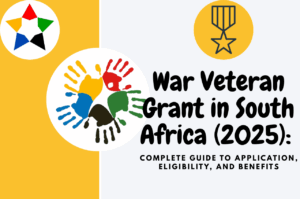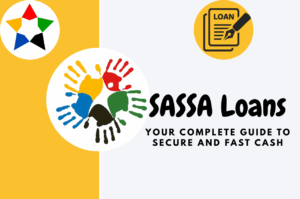If you’re planning to apply for financial assistance in South Africa, understanding the SASSA Application process is essential. Whether you’re applying for a child grant, disability support, or social relief, knowing what to expect can save you time and frustration. In this blog post, we’ll guide you through everything you need to know about applying for SASSA grants — from eligibility and required documents to how to check your application status.
What is SASSA and What Does It Do?
The SASSA is a government agency responsible for distributing social grants to eligible South African citizens. Established in 2005, SASSA operates under the Department of Social Development and plays a critical role in reducing poverty and supporting vulnerable individuals and families.
What is the Purpose of SASSA?
SASSA’s main goal is to provide financial assistance to people who are:
- Unemployed
- Elderly
- Disabled
- Caring for young children
- Unable to support themselves due to health or personal conditions
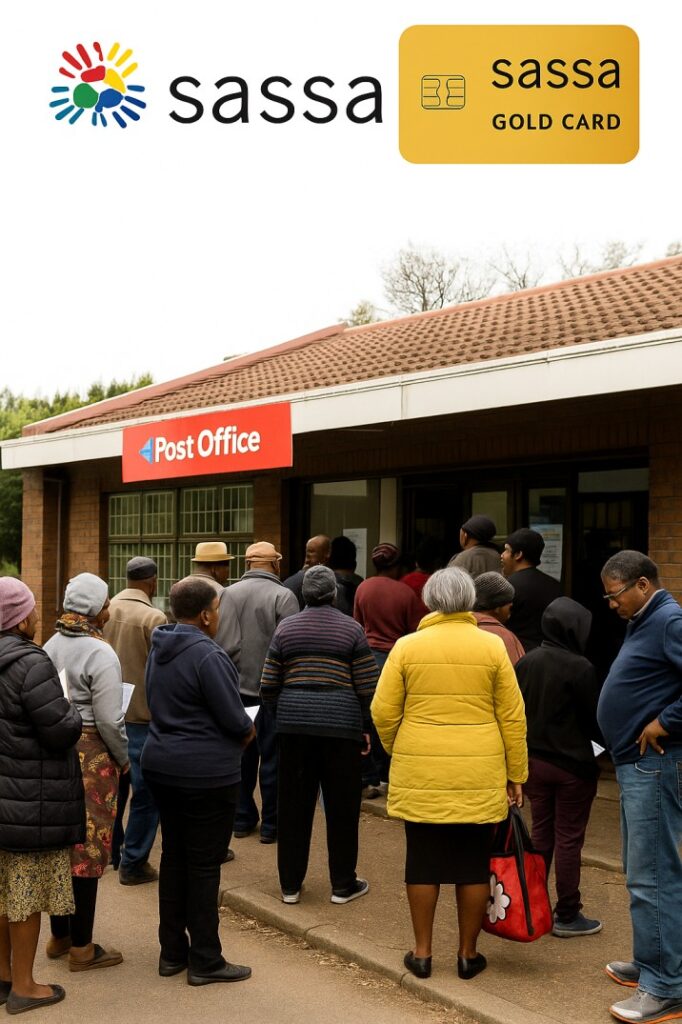
By issuing social grants, SASSA ensures that millions of South Africans have access to basic needs such as food, shelter, and healthcare.
Types of SASSA Grants
SASSA offers a range of social grants designed for different life circumstances:
- Child Support Grant – For caregivers of children under 18 years.
- Older Persons Grant – For citizens aged 60 and above.
- Disability Grant – For those medically certified as disabled.
- Foster Child Grant – For caregivers of children placed in their care by a court.
- Care Dependency Grant – For caregivers of children with permanent disabilities.
- Grant-in-Aid – For those who require full-time care from another person.
- Social Relief of Distress (SRD) Grant – Temporary aid for people in crisis situations.
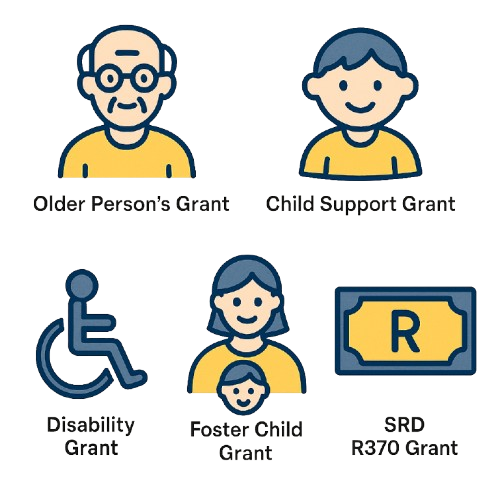
How to Start Your SASSA Application
To receive any of these grants, you must complete a SASSA Application. You can apply:
- Online via the SASSA website
- In person at your nearest SASSA office
- Through a proxy, if you’re physically unable to apply yourself
The application process involves submitting personal documents such as your South African ID, proof of income (if any), and medical or birth certificates depending on the grant.
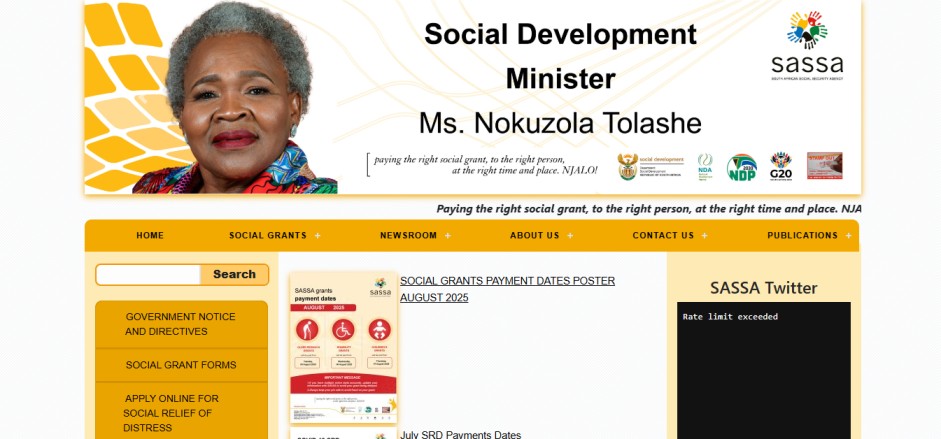
Who Qualifies for a SASSA Grant?
Each SASSA grant has its own requirements, but general eligibility includes:
- South African citizenship or permanent residency
- Meeting the age or medical condition for the specific grant
- Passing a means test to prove financial need
Applicants must also not be receiving support from another government-funded institution.
Note: Submitting false information during your SASSA Application can result in penalties or rejection.
How Long Does a SASSA Application Take?
After submitting your SASSA Application, it may take up to 90 days to be processed. If approved, you’ll start receiving payments from the date your application was submitted.
You can track your application status online or by calling the SASSA helpline.
Who Qualifies for a SASSA Grant?
If you’re considering applying for a social grant in South Africa, it’s important to understand whether you meet the requirements. The South African Social Security Agency (SASSA) offers different grants to support individuals and families in need. However, each grant has specific qualifying criteria.
Before starting your SASSA Application, it’s essential to know which grant you’re eligible for and what documents you’ll need.
General Requirements for All SASSA Grants
Regardless of the grant type, you must meet the following general requirements:
- Be a South African citizen, permanent resident, or refugee with valid documents
- Live in South Africa full-time
- Not be receiving support from another government institution (e.g., in prison or state care)
- Pass a means test to prove financial need (based on income and assets)
Specific Grant Requirements
Each type of grant has its own additional qualifications:
1. Child Support Grant
- Child must be under 18 years old
- Caregiver must be the primary caregiver
- Both caregiver and child must meet the means test
2. Older Persons Grant
- You must be 60 years or older
- Not receiving any other social grant or pension
- Must meet the means test
3. Disability Grant
- You must be between 18 and 59 years old
- Certified as medically disabled by a state doctor
- Meet the means test
4. Foster Child Grant
- Child must be placed in your care by a court order
- Grant is only valid for the duration of the court order
5. Care Dependency Grant
- For children with permanent disabilities under the age of 18
- Must be under full-time care
- Requires a medical assessment report
6. Grant-in-Aid
- Already receiving another SASSA grant
- Require full-time care due to physical or mental condition
- Need a medical assessment to confirm condition
7. Social Relief of Distress (SRD) Grant
- For those in temporary need (e.g., lost income, disaster victims)
- Must not receive any other income or grant during the application period
When to Apply
You should start your SASSA Application as soon as you meet the criteria for a specific grant. Applications can be submitted:
- Online via the official SASSA services portal
- At a SASSA office near you
- Through a proxy if you are too ill or disabled to apply in person
Types of SASSA Grants You Can Apply For
When you submit a SASSA Application, it’s important to know which type of grant best suits your situation. The South African Social Security Agency (SASSA) provides several grants to assist vulnerable individuals and families. Each grant is designed for a specific group, and the qualifications vary.
Below is a breakdown of all the SASSA grants currently available, including who they’re for and what you need to know before applying.
1. Child Support Grant
This grant is meant for caregivers of children under the age of 18.
You qualify if:
- You are the primary caregiver (parent, grandparent, or legal guardian)
- The child lives with you in South Africa
- Both you and the child pass the means test
2. Older Persons Grant (Old Age Pension)
For elderly individuals aged 60 years and above.
You qualify if:
- You are a South African citizen or permanent resident
- You are 60 years or older
- You pass the means test
- Not receiving another social grant
3. Disability Grant
For adults who are medically certified as disabled and unable to work.
You qualify if:
- You are between 18 and 59 years old
- You have a disability confirmed by a state doctor
- You meet the financial means criteria
4. Foster Child Grant
This grant supports children placed in foster care by a court.
You qualify if:
- You are the legal foster parent of a child
- You have a valid court order
- The child remains in your care and resides in South Africa
5. Care Dependency Grant
Designed for caregivers of children with severe disabilities who need full-time care.
You qualify if:
- You care for a child under 18 with a permanent disability
- The child must undergo a medical assessment
- You pass the means test
6. Grant-in-Aid
This grant helps individuals who need full-time care from someone else.
You qualify if:
- You are already receiving a SASSA grant (e.g., old age or disability)
- You are unable to care for yourself
- A state doctor confirms your need for daily assistance
7. Social Relief of Distress (SRD) Grant
This is a temporary grant for individuals in urgent need.
You qualify if:
- You are currently unemployed or facing a crisis
- You do not receive other grants or income
- You pass the screening criteria
- This includes the R350 COVID-19 SRD Grant
How to Apply
No matter which grant you’re applying for, every process starts with a SASSA Application. You can apply:
- Online via the SASSA services portal
- In person at your nearest SASSA office
- With assistance, if you are ill, elderly, or disabled
Be sure to bring or upload required documents such as your ID, proof of income, medical reports, or court orders, depending on the grant type.
SASSA Application Methods: Online vs In-Person
If you need financial assistance through a social grant in South Africa, you’ll need to complete a SASSA Application. Fortunately, there are two main ways to apply: online or in person. Each method has its pros and cons, and the right choice depends on your situation, access to the internet, and personal preference.
In this article, we’ll compare both methods to help you decide which one works best for you.
1. Online SASSA Application
The online application process is ideal for those who have access to a smartphone, tablet, or computer with internet. It is convenient and can be done from the comfort of your home.
How to Apply Online
- Visit the official SASSA services website
- Register for an account using your ID number and contact details
- Select the type of grant you are applying for
- Upload the required documents (e.g. ID copy, proof of income, medical reports)
- Submit your SASSA Application and wait for confirmation
Pros of Applying Online
- No need to travel or wait in long queues
- You can apply at any time, even after office hours
- Application progress can be tracked online
Cons of Applying Online
- Requires a stable internet connection
- Not suitable for people who struggle with technology
- Certain documents may still need to be submitted in person if incomplete

2. In-Person SASSA Application
The in-person method is the traditional way of applying and is still preferred by many South Africans, especially in rural areas or for people who are not comfortable with digital platforms.
How to Apply In Person
- Go to your nearest SASSA office
- Bring all necessary documents (e.g. South African ID, proof of income, birth certificates, etc.)
- Complete the application forms with the help of a SASSA officer
- Submit your documents and receive a stamped receipt as proof of application
Pros of Applying In Person
- SASSA officers are available to help with the application
- No internet or device required
- Suitable for people who need personal assistance
Cons of Applying In Person
- Long queues and wait times
- May require multiple visits if documents are missing
- Travel costs and time spent at the office
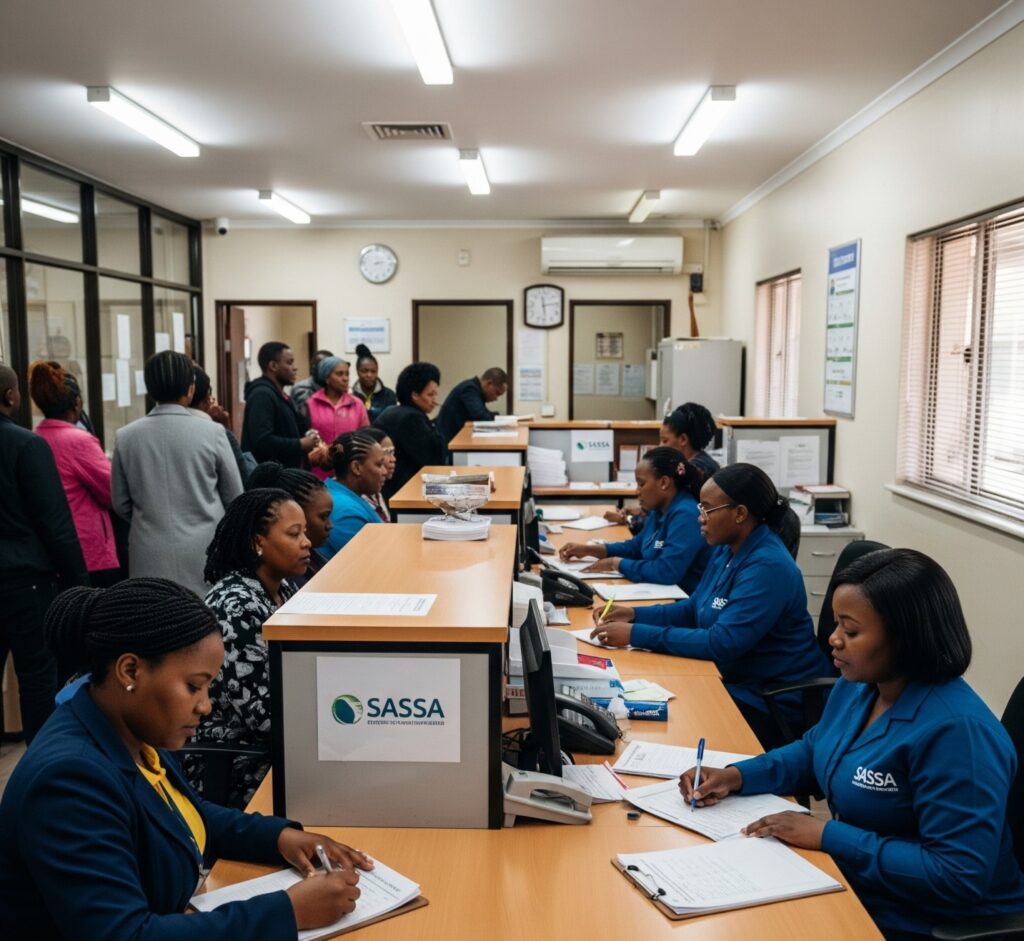
Which Method Should You Choose?
Choose Online if you:
- Have access to a device and internet
- Are comfortable using online platforms
- Want to save time and avoid travel
Choose In Person if you:
- Prefer face-to-face assistance
- Do not have internet access
- Need help understanding the process or submitting documents
Required Documents for SASSA Application
Before you begin your SASSA Application, it’s important to prepare all the required documents. Having the correct paperwork ready can speed up the process and help avoid delays or rejections.
Different types of grants may require slightly different documents, but there are several key documents that are needed for almost all SASSA Applications.
General Documents Needed for All SASSA Applications
No matter which grant you’re applying for, you will typically need the following:
- Certified copy of your South African ID (or smart card)
- Proof of residence (e.g., utility bill, letter from a traditional leader or ward councillor)
- Proof of income or unemployment (bank statements, payslips, or affidavit)
- Completed SASSA application form (available at SASSA offices or online)
- Banking details (e.g., bank confirmation letter or cancelled cheque)
Additional Documents Based on Grant Type
Each SASSA grant may require additional documents that are specific to your situation:
1. Child Support Grant
- Child’s birth certificate
- Caregiver’s ID
- Proof of school attendance (for older children)
- Affidavit if you are not the biological parent
2. Older Persons Grant
- Proof of age (ID showing you are 60 years or older)
- Proof of any private pension or income
3. Disability Grant
- Medical assessment report from a state doctor
- Details of hospital or clinic visits
- Your ID and proof of address
4. Foster Child Grant
- Court order confirming foster care
- Child’s birth certificate
- Foster parent’s ID
5. Care Dependency Grant
- Child’s medical report confirming permanent disability
- Birth certificate of the child
- Caregiver’s ID and proof of income
6. Grant-in-Aid
- Medical report proving that you need full-time care
- Confirmation that you’re already receiving another SASSA grant
7. SRD Grant (Social Relief of Distress)
- ID or asylum seeker permit
- Proof of unemployment
- Contact details (for SMS and verification)
Tips When Submitting Documents
- All copies must be certified within the last 3 months
- Documents must be clear and readable
- Keep copies of everything you submit
- If applying online, scan or take clear photos of all documents
Common Mistakes to Avoid When Applying
Filing a SASSA Application may seem simple, but small errors can lead to delays or rejection. Many people miss out on their grants because they forget documents, provide incorrect information, or fail to follow instructions. To help you avoid this, here’s a list of the most common mistakes applicants make—and how to fix them.
1. Submitting Incomplete Documents
One of the most common reasons for a failed SASSA Application is missing paperwork. Each grant type requires specific documents like ID copies, birth certificates, proof of income, or medical assessments.
Avoid this by:
- Checking the full list of required documents for your grant
- Making sure all copies are certified and up to date
- Bringing or uploading everything at once
2. Giving Incorrect Personal Information
Simple errors in your ID number, phone number, or address can delay your application or cause it to be rejected.
Avoid this by:
- Double-checking your application before submitting
- Making sure your contact details are accurate and active
- Using the same name as on your ID document
3. Ignoring the Means Test Requirements
Every grant has a means test to determine if your income or assets qualify. Many applicants either don’t understand the limits or fail to submit proof of income.
Avoid this by:
- Understanding the income thresholds for your specific grant
- Including clear bank statements or payslips (if any)
- Not hiding or misreporting your income
4. Applying for the Wrong Grant
Some applicants apply for a grant they don’t qualify for, such as applying for an old age grant before turning 60 or for a disability grant without a medical assessment.
Avoid this by:
- Reading the eligibility criteria for each grant
- Applying only for grants you fully qualify for
- Asking a SASSA officer for advice if unsure
5. Submitting Multiple Applications
Many people think that submitting their SASSA Application multiple times will help speed things up—but this can confuse the system or even get your application flagged.
Avoid this by:
- Applying once per grant type
- Waiting for feedback from SASSA before taking further action
- Using the status check tool on the SASSA website to track progress
6. Missing Follow-Up Dates
After applying, SASSA may request additional documents or set appointments for assessments. Missing these can delay approval or cancel your application altogether.
Avoid this by:
- Checking your SMS and email regularly
- Writing down any follow-up appointment dates
- Keeping your phone number active and reachable
How to Check Your SASSA Application Status
After submitting your SASSA Application, it’s important to track your progress to know whether your grant has been approved, declined, or still pending. Fortunately, SASSA provides several ways for applicants to check their status easily—whether online or by phone.
This guide will show you how to check your SASSA Application status step-by-step.
1. Check Status Online
The fastest way to check your SASSA Application status is through the official SASSA SRD website.
Steps:
- Go to the official status check page: https://srd.sassa.gov.za/sc19/status
- Enter your South African ID number
- Enter the mobile number you used during the application
- Click “Submit” to see your application status
You’ll see updates such as:
- Pending
- Approved
- Declined
- Payment date (if approved)
2. Check Status via WhatsApp
You can also check your SASSA status using WhatsApp.
Steps:
- Save the number 082 046 8553 on your phone
- Open WhatsApp and send a message saying “status”
- Follow the prompts to provide your ID number and other details
- You will receive an update on your grant status
This method is convenient for people who don’t have access to a computer.
3. Check Status via SASSA Call Centre
If you prefer speaking to a SASSA representative, you can call the SASSA toll-free number:
- Phone: 0800 60 10 11
- Have your ID number ready
- Be prepared to confirm your details
This method is helpful for those with limited internet access or questions about their status.
4. Check Status via SMS (for SRD Grants)
Sometimes SASSA sends SMS notifications with updates. However, you can also manually send a message to check your SASSA Application.
- Dial 1203210# or 12062277# on your mobile phone
- Follow the prompts to receive your status via SMS
What Each Status Means
- Pending: Your application is being processed
- Approved: You qualify and will receive payment soon
- Declined: Your application didn’t meet requirements
- Reapplication Required: You must apply again for the current cycle
- Payment Date Available: Your funds are ready for collection or bank transfer
How Long Does It Take to Get Approved?
After submitting your SASSA Application, one of the most common questions is: “How long will it take to get approved?” While there’s no fixed timeline for every case, SASSA generally follows a standard process with estimated waiting periods.
This article explains the typical approval timeline, factors that may cause delays, and how you can track your application status.
Average Waiting Period
For most grants, the average processing time for a SASSA Application is around 2 to 3 months (up to 90 days). This includes time for:
- Verifying your personal and financial details
- Reviewing your supporting documents
- Conducting a means test
- Approving or declining your application
Why Does It Take That Long?
Here are the main reasons why the process can take weeks:
- High number of applications being handled across the country
- Incomplete or missing documents that need to be followed up
- Medical assessments (for disability or care dependency grants)
- Delays in verifying information with banks, clinics, or Home Affairs
- Public holidays or system issues causing backlogs
How You’ll Know You’re Approved
Once your SASSA Application is approved, you will receive a notification:
- Via SMS (make sure your contact number is correct)
- Online status update if you applied through the SASSA portal
- In person at the SASSA office (if you submitted your application there)
After approval, your first payment will usually be made within 7 to 10 working days, depending on your payment method (bank account or pay point).
What You Can Do to Speed Things Up
To avoid delays, you can:
- Submit all required documents upfront
- Ensure documents are certified and valid
- Provide accurate contact information
- Regularly check your application status in case SASSA needs follow-up info
- Avoid submitting duplicate applications
When to Follow Up
If you haven’t received a response after 90 days, you should:
- Check your status online or via WhatsApp
- Visit the nearest SASSA office with your ID and reference number
- Call the SASSA helpline at 0800 60 10 11
It’s better to follow up than to wait in silence—especially if your contact details have changed.
Frequently Asked Questions (FAQs)
1. How do I start my SASSA Application?
You can start your SASSA Application online through the official website or by visiting your nearest SASSA office. Make sure to prepare the required documents before you begin.
2. Can I apply for more than one grant at the same time?
No. You can only apply for one type of grant at a time. However, you may qualify for different grants at different stages of your life (e.g., child grant now and an older person’s grant later).
3. Is there a fee to apply for a SASSA grant?
No, applying for a grant is completely free. Never pay anyone claiming to speed up your SASSA Application.
4. How long does it take to process a SASSA Application?
It usually takes between 2 to 3 months (up to 90 days). You can check your status online, via WhatsApp, or by calling the SASSA toll-free number.
5. What should I do if my application is declined?
You have the right to appeal a declined SASSA Application. You must submit an appeal within 90 days of receiving the rejection notice.
6. Can I apply for a SASSA grant on behalf of someone else?
Yes. If the person is too ill, disabled, or elderly to apply themselves, a proxy may apply on their behalf. You’ll need additional documentation, such as a letter of authority or medical proof.
7. Do I need a bank account to apply?
No, but it is recommended. Payments can be made into a bank account, through the Post Office, or collected at designated pay points. You can choose your preferred payment method during your application.
8. What happens if I submitted the wrong information?
Incorrect information may delay or cancel your application. Visit a SASSA office or call the helpline to correct your details as soon as possible.
9. Can I reapply if I was previously declined?
Yes. If your circumstances have changed or you’ve corrected your documents, you may reapply or submit an appeal.
10. How do I know if my grant is ready for payment?
Once your SASSA Application is approved, you’ll receive a payment notification via SMS. You can also check the payment status on the SASSA website or WhatsApp line.
Conclusion
Applying for a social grant through SASSA can be a vital step in securing financial support for yourself or your family. Understanding the process—from knowing who qualifies, the types of grants available, the required documents, and the different application methods—helps ensure your SASSA Application is successful and timely.
Remember to prepare all necessary documents carefully, avoid common mistakes, and regularly check your application status to stay informed. Patience and accuracy are key, as processing can take time but ultimately brings much-needed relief to millions of South Africans.
If you follow these guidelines and stay proactive, you increase your chances of getting approved and receiving your grant without unnecessary delays.

